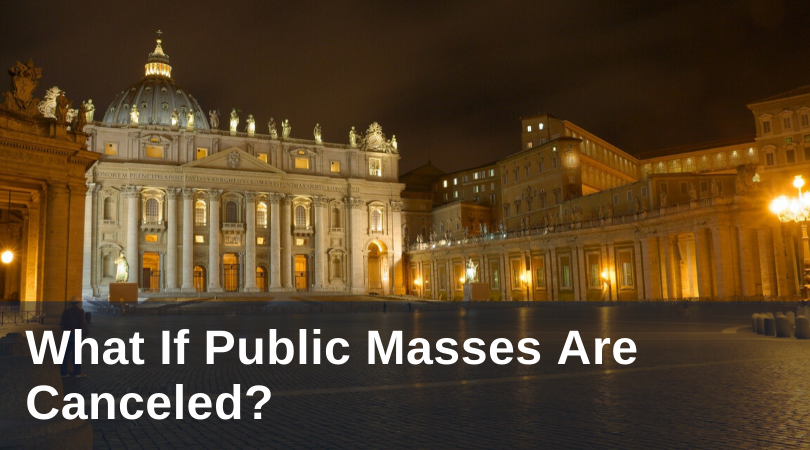
The degree to which Catholics love the Mass has never been more evident than in Catholic Twitter’s reaction to liturgical adjustments made because of the Coronavirus outbreak. The cancellation of the Eucharist in Rome has led many to wonder how the faithful can survive without regular celebration of the Mass in their presence, the reception of Holy Communion as a way of receiving grace in these trying times. Our longing to receive the Eucharist during this time, to hear the Holy Scriptures, and spend time with one another in Christian community is a sign that our identity as Catholics is closely tied to the Eucharist.
Still, some of the more cantankerous members of Catholic Twitter have grumbled about the possible elimination of the Sign of Peace (shaking hands during this Sign of Peace is not actually a liturgical requirement), eliminating the holding of hands during the Our Father (not part of the Rite in the first place), and not receiving the Body and Blood of our Lord on the tongue.
The on-again, off-again bitterness that has accompanied the liturgical prescriptions given by dioceses considering the present epidemic is ultimately anti-Eucharistic. As St. Thomas Aquinas notes, the res tantum of the Eucharist—that is, the ultimate reality that the Eucharist points to—is the union of the body of believers brought together through the caritas of Christ. The Church is called to be the unity of humankind, gathered in adoration around the Lamb once slain, becoming a space of peace in a world more often defined by violence and force.
Thus, giving up one’s preferred liturgical practices for the benefit of Christ’s Body, perhaps even giving up regular reception of the Eucharist, is the ultimate meaning of the Eucharist. The Eucharist, after all, is fundamentally about self-sacrificial love unto the end. If public liturgical celebrations are cancelled in the United States (and they may be), this doesn’t mean that the Christian faithful are left without grace. For the desire to praise God, to care for the vulnerable in our midst, to forego a practice intrinsic to the flourishing of our spiritual lives for the benefit of our neighbor, is the very spiritual sacrifice that the Eucharist demands.
If the Church ends up in a situation where public liturgical celebrations are cancelled, even those for Easter itself, this will undoubtedly cause sadness. And yet that sadness is a sign of something more, a recognition that desire for God is built into our very beings. And that sadness—the desire to offer the sacrifice of praise back to the Father through the Son in the Holy Spirit—is itself the Eucharistic sacrifice that many of the baptized will be called to offer.
In the end, even when we Catholics are not gathered together, we are part of one another. That’s what it means to belong to the Church in the first place. Through Christ, each of us is united to one another in our sufferings and our joys.
The cancellation of public liturgical celebrations can’t stop that.
Like what you read? Submit your email below to have our newest blogs delivered directly to your inbox each week.


